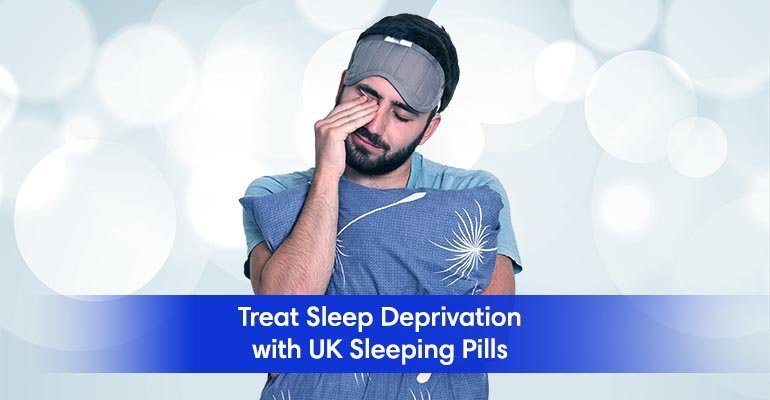Zopiclone is a popular medication often prescribed for the treatment of insomnia. It’s known for its efficacy in helping people fall asleep and maintain sleep throughout the night. But one of the most common questions patients and caregivers ask is, “How many hours does zopiclone keep you asleep?” Understanding the duration of action of zopiclone, its mechanism, and the factors influencing its effectiveness can help users make informed decisions and manage their sleep disorders more effectively.
What is Zopiclone?
Zopiclone is a non-benzodiazepine hypnotic agent used primarily for the short-term treatment of insomnia. It’s classified under a group of medications known as Z-drugs, which also includes zolpidem (Ambien) and eszopiclone (Lunesta). These medications work by affecting neurotransmitters in the brain to induce sedation and promote sleep.
How Does Zopiclone Work?
Zopiclone enhances the activity of gamma-aminobutyric acid (GABA), a neurotransmitter that slows down brain activity. By binding to GABA receptors, zopiclone helps to calm the brain, making it easier for the user to fall asleep and stay asleep.
Also Read: Insomniac’s Ally: A Deep Dive into Zopiclone Pill
Duration of Action: How Long Does Zopiclone Keep You Asleep?
The duration of sleep induced by zopiclone can vary based on several factors, including the dosage, individual metabolism, age, overall health, and presence of other medications. Generally, zopiclone has a half-life of about 5 hours, but its effects can last longer.
Typical Duration
- Standard Dosage (7.5 mg): When taken at the standard dosage of Zopiclone 7.5 mg, zopiclone usually induces sleep within 30 minutes and helps maintain sleep for 6-8 hours. This duration can provide a full night’s rest for most individuals.
- Lower Dosage (3.75 mg): A lower dose of 3.75 mg is often prescribed for older adults or those with liver or kidney impairments. At this dosage, zopiclone may still help with sleep onset and maintenance, but the duration might be slightly shorter, typically around 4-6 hours.
Factors Influencing Duration
- Age: Older adults may experience prolonged effects due to slower metabolism and reduced clearance of the drug from the body.
- Liver and Kidney Function: Impaired liver or kidney function can lead to slower elimination of zopiclone, extending its duration of action.
- Concurrent Medications: Other medications, especially those that depress the central nervous system, can enhance the sedative effects of zopiclone.
- Individual Metabolism: Genetic differences can influence how quickly zopiclone is metabolized and eliminated from the body.
The Sleep Cycle and Zopiclone
To understand how zopiclone affects sleep, it’s important to consider the sleep cycle. Sleep is divided into several stages, including light sleep, deep sleep, and REM (rapid eye movement) sleep. Zopiclone primarily increases the duration of deep sleep, which is the most restorative phase. It does not significantly alter REM sleep, which is important for cognitive function and emotional regulation.
Possible Side Effects and Considerations
While zopiclone is effective in promoting sleep, it can have side effects, some of which may impact its overall duration and quality of sleep.
Common Side Effects
- Drowsiness: The most common side effect is next-day drowsiness, which can impair cognitive and motor functions.
- Bitter Taste: Some users report a metallic or bitter taste in the mouth.
- Headache: Headaches are a relatively common side effect.
- Dry Mouth: Zopiclone can cause dry mouth, which might be uncomfortable.
Serious Side Effects
- Amnesia: In rare cases, zopiclone can cause short-term memory loss or amnesia.
- Complex Sleep Behaviors: Some users may experience sleepwalking, sleep driving, or engaging in other activities while not fully awake.
- Dependence and Withdrawal: Prolonged use can lead to physical and psychological dependence. Withdrawal symptoms can include anxiety, agitation, and rebound insomnia.
Also Read: Can Diabetes Cause Insomnia?
Best Practices for Using Zopiclone
To maximize the benefits and minimize the risks associated with zopiclone, consider the following best practices:
- Follow Prescribed Dosage: Always take zopiclone exactly as prescribed by your healthcare provider. Do not increase the dose without consulting your doctor.
- Short-Term Use: Zopiclone is intended for short-term use, usually not exceeding 2-4 weeks. Long-term use increases the risk of dependence and tolerance.
- Avoid Alcohol and Other Sedatives: Combining zopiclone with alcohol or other sedative medications can enhance its effects and increase the risk of side effects.
- Healthy Sleep Habits: Complement zopiclone use with good sleep hygiene practices, such as maintaining a regular sleep schedule, creating a comfortable sleep environment, and avoiding caffeine and electronics before bedtime.
Alternatives to Zopiclone
While zopiclone is effective for many individuals, it may not be suitable for everyone. Several alternatives can be considered:
Prescription Medications
- Zolpidem (Ambien): Another Z-drug with a similar mechanism of action. It has a shorter half-life, which might be preferable for some users.
- Eszopiclone (Lunesta): Similar to zopiclone but can be used for longer-term treatment of insomnia.
Over-the-Counter Options
- Melatonin: A natural hormone that regulates sleep-wake cycles. It can be effective for some individuals with insomnia.
- Antihistamines: Such as diphenhydramine (Benadryl), which can induce drowsiness but may have next-day sedative effects.
Non-Pharmacological Treatments
- Cognitive Behavioral Therapy for Insomnia (CBT-I): A highly effective treatment that addresses the underlying causes of insomnia.
- Relaxation Techniques: Practices such as meditation, deep breathing exercises, and progressive muscle relaxation can improve sleep quality.
Understanding Tolerance and Dependence
One of the challenges with using buy zopiclone UK is the potential for developing tolerance and dependence. Over time, the body can become accustomed to the drug, reducing its effectiveness and requiring higher doses to achieve the same effect. Dependence can develop, leading to withdrawal symptoms if the medication is abruptly discontinued.
Preventing Tolerance and Dependence
- Use Sparingly: Limit use to the shortest duration necessary to manage symptoms.
- Regular Assessment: Regularly review the need for continued use with your healthcare provider.
- Gradual Tapering: If discontinuing zopiclone, work with your doctor to gradually reduce the dose to minimize withdrawal symptoms.
Also Read: Top 10 Tips for Using Zopiclone Safely and Effectively
The Role of Lifestyle and Behavioral Changes
In addition to medication, making lifestyle and behavioral changes can significantly improve sleep quality and reduce reliance on sleep aids like zopiclone.
Sleep Hygiene Tips
- Consistent Schedule: Go to bed and wake up at the same time every day, even on weekends.
- Comfortable Environment: Ensure your bedroom is cool, dark, and quiet.
- Limit Stimulants: Avoid caffeine, nicotine, and heavy meals close to bedtime.
- Exercise: Regular physical activity can promote better sleep, but avoid vigorous exercise close to bedtime.
Stress Management
- Relaxation Techniques: Practices such as yoga, meditation, and deep breathing can reduce stress and improve sleep.
- Time Management: Organizing your day and setting priorities can help reduce anxiety that interferes with sleep.
When to Seek Professional Help
If you continue to experience sleep difficulties despite taking zopiclone or implementing lifestyle changes, it may be time to seek professional help. Chronic insomnia can be a symptom of underlying health issues such as depression, anxiety, or sleep apnea.
Consulting a Sleep Specialist
A sleep specialist can conduct a thorough evaluation, including a sleep study if necessary, to diagnose and treat underlying sleep disorders. Treatment options may include a combination of medication, therapy, and lifestyle modifications.
Mental Health Support
Addressing mental health conditions such as anxiety and depression can significantly improve sleep quality. Cognitive Behavioral Therapy (CBT) and other forms of counseling can be highly effective in managing these conditions and improving sleep.
Conclusion
Zopiclone UK is a widely used and effective medication for the short-term treatment of insomnia. It typically helps individuals fall asleep quickly and stay asleep for 6-8 hours, providing a full night’s rest. However, the duration of its effects can vary based on factors such as dosage, age, metabolism, and overall health.
While zopiclone can be a valuable tool in managing insomnia, it’s important to use it responsibly and in conjunction with good sleep hygiene practices. Understanding the potential side effects, risks of tolerance and dependence, and alternative treatment options can help users make informed decisions about their sleep health.
If you continue to struggle with sleep despite taking zopiclone, consider consulting a healthcare provider or sleep specialist for a comprehensive evaluation and personalized treatment plan. With the right approach, you can achieve better sleep and improve your overall quality of life.
Also Read: How Zopiclone Can Help You Get a Good Night’s Sleep





